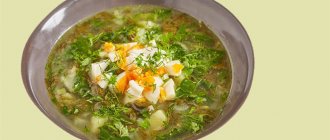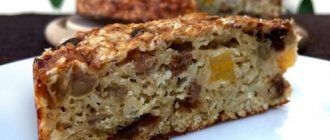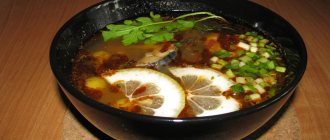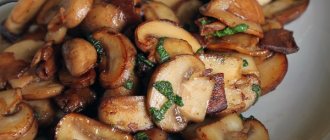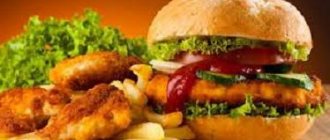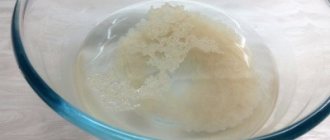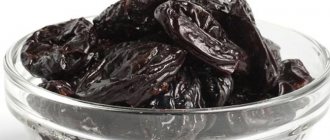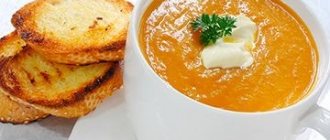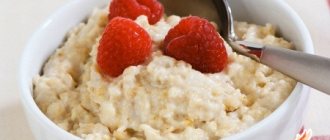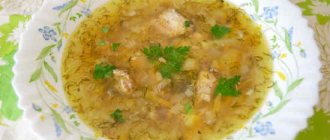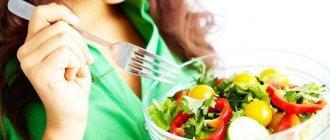Lose weight up to 5 kg in 7 days. The average daily calorie content is 610 Kcal.
We have heard about many diets, some of which are based on exotic foods, others require compliance with many special rules. It turns out that you can lose weight with borscht. If you cook this popular dish correctly, the kilograms will melt just before your eyes. And at the same time, you are unlikely to remain hungry, because liquid food helps maintain a feeling of fullness for a longer time. It turns out that in a week of eating with an emphasis on borscht, you can lose up to five kilograms of excess weight.
Diet requirements for borscht
First, let's find out how to cook dietary borscht. To maximize weight loss on a borscht diet, you should eat vegetarian borscht (avoid the presence of meat in it), and also not add potatoes to this dish. It is known that starch is not the best aid in losing weight, but potatoes have plenty of this component. So, to prepare diet borscht you will need
: beets, carrots, cabbage, bell peppers, zucchini, celery stalks, onions and tomato paste. The finished borscht should be quite liquid (the spoon should not, as they say, stand in it). During the cooking process, we avoid frying. Carrots, onions and beets must be steamed in a frying pan in the company of water and tomato paste. After adding cabbage, bell peppers, zucchini, and borscht, boil for 5-8 minutes. A couple of minutes before removing the pan from the stove, add chopped celery stalks and your favorite herbs to the borscht, and add a little salt, if desired. Want to make your dish an even more powerful fat burner? Then add a little red hot pepper to it. Just don't overdo it! In order for the taste of the borscht to reveal itself, it is recommended to leave it for about half an hour under a closed lid. Now you can start eating.
There are several popular options for losing weight using borscht. In the weekly diet of the first diet option
there is a certain set of food, in addition to borscht. Drinks allowed include coffee and tea without sugar. But be sure to drink at least 2 liters of water daily. The meal plan is provided six times a day, this helps maintain a feeling of fullness throughout the day.
On the first day of the borscht diet, you should consume 1.5 liters of the main dish and up to 300 g of rye bread, which can be eaten with a liquid dish or separately. On the second day, the same amount of borscht can be supplemented with skinless chicken breast (300 g), cooked without adding oil, dividing the meat into two equal parts. Chicken can be eaten with borscht or separately. On the third diet day you need to eat up to 1 liter of borscht and supplement the menu with 500 grams of boiled buckwheat. It is recommended to consume cereals together with borscht and no more than 250 g at a time. On the fourth day, the set of products is as follows: 1 liter of borscht, 200 g of rye bread, up to 600 g of salad from non-starchy vegetables or any other, the calorie content of which does not exceed 50 units per 100 g of finished product. On the fifth day, you are allowed to eat up to 1.5 liters of borscht and up to 400 g of low-fat fish, cooked without oil. Lean meat of pike perch, crucian carp, and pike is held in high esteem. You can eat fish as an independent dish or combined with borscht. On the sixth day, 1.5 liters of dietary borscht is supplemented with one kilogram of apples. It is better to choose green fruits of sweet and sour varieties. And the extreme diet day provides for the presence in the diet of 1 liter of borscht, 500 g of cottage cheese with a fat content of up to 9% and 0.5 liters of low-fat kefir. You should not eat more than 250 g of cottage cheese at a time; we drink kefir together with cottage cheese or separately from everything else (but not together with the diet favorite!).
Second diet option
on borscht is also designed for a week and promises similar weight loss. During the first day, it is allowed to eat (in addition to borscht, which does not leave the diet for all 7 days) any fruit, with the exception of bananas and grapes. The menu of the second day includes any vegetables (it is advisable to focus on green varieties), except legumes. On the third day, the diet contains vegetables and fruits (the prohibitions of the first days remain in force, and you should also avoid potatoes). The menu of the fourth day is the same as the previous one, but you can also drink a glass of milk (skim or low fat). On the fifth diet day, beef (up to 200 g) is allowed, the preparation of which did not use oil, and tomatoes. On the sixth day, any vegetables are added to the diet of the fifth day (except for the previously mentioned potatoes and legumes). And we complete the diet by eating borscht and a portion of rice with the addition of your favorite vegetables on the seventh day and drinking a glass of freshly squeezed fruit juice. It is recommended to eat food 5 times a day, without overeating, and refusing to eat 2-3 hours before bedtime.
Fully or partially limited products
- Dough products, sweets, cookies, jam, halva, chocolate, ice cream, and products with cream are excluded.
- Fatty meats (duck, goose, pork, lamb), sausages, canned food.
- Animal fats.
- Fatty dairy products (sour cream, cream).
- Limit salt, meat broths, potatoes, and vegetable fats.
Table of prohibited products
| Proteins, g | Fats, g | Carbohydrates, g | Calories, kcal | |
Fruits | ||||
| bananas | 1,5 | 0,2 | 21,8 | 95 |
Nuts and dried fruits | ||||
| raisin | 2,9 | 0,6 | 66,0 | 264 |
Cereals and porridges | ||||
| semolina | 10,3 | 1,0 | 73,3 | 328 |
| white rice | 6,7 | 0,7 | 78,9 | 344 |
Flour and pasta | ||||
| pasta | 10,4 | 1,1 | 69,7 | 337 |
Bakery products | ||||
| bagels | 16,0 | 1,0 | 70,0 | 336 |
| bagels | 16,0 | 1,0 | 70,0 | 336 |
| crackers | 11,2 | 1,4 | 72,2 | 331 |
Confectionery | ||||
| jam | 0,3 | 0,2 | 63,0 | 263 |
| jam | 0,3 | 0,1 | 56,0 | 238 |
| candies | 4,3 | 19,8 | 67,5 | 453 |
| pastry cream | 0,2 | 26,0 | 16,5 | 300 |
Ice cream | ||||
| ice cream | 3,7 | 6,9 | 22,1 | 189 |
Cakes | ||||
| cake | 4,4 | 23,4 | 45,2 | 407 |
Chocolate | ||||
| chocolate | 5,4 | 35,3 | 56,5 | 544 |
Raw materials and seasonings | ||||
| ketchup | 1,8 | 1,0 | 22,2 | 93 |
| mayonnaise | 2,4 | 67,0 | 3,9 | 627 |
Dairy | ||||
| cream | 2,8 | 20,0 | 3,7 | 205 |
| sour cream 30% | 2,4 | 30,0 | 3,1 | 294 |
| sour cream 40% (fat) | 2,4 | 40,0 | 2,6 | 381 |
Meat products | ||||
| pork | 16,0 | 21,6 | 0,0 | 259 |
| pork fat | 1,4 | 92,8 | 0,0 | 841 |
| salo | 2,4 | 89,0 | 0,0 | 797 |
| mutton | 15,6 | 16,3 | 0,0 | 209 |
Sausages | ||||
| smoked sausage | 16,2 | 44,6 | 0,0 | 466 |
| smoked sausage | 9,9 | 63,2 | 0,3 | 608 |
| sausages | 10,1 | 31,6 | 1,9 | 332 |
| sausages | 12,3 | 25,3 | 0,0 | 277 |
Bird | ||||
| smoked chicken | 27,5 | 8,2 | 0,0 | 184 |
| duck | 16,5 | 61,2 | 0,0 | 346 |
| smoked duck | 19,0 | 28,4 | 0,0 | 337 |
| goose | 16,1 | 33,3 | 0,0 | 364 |
Fish and seafood | ||||
| smoked fish | 26,8 | 9,9 | 0,0 | 196 |
| salted fish | 19,2 | 2,0 | 0,0 | 190 |
| canned fish | 17,5 | 2,0 | 0,0 | 88 |
| semi-finished fish products | 12,5 | 6,7 | 14,7 | 209 |
| sardine | 20,6 | 9,6 | — | 169 |
| cod (liver in oil) | 4,2 | 65,7 | 1,2 | 613 |
Oils and fats | ||||
| butter | 0,5 | 82,5 | 0,8 | 748 |
| creamy margarine | 0,5 | 82,0 | 0,0 | 745 |
| coconut oil | 0,0 | 99,9 | 0,0 | 899 |
| palm oil | 0,0 | 99,9 | 0,0 | 899 |
| rendered beef fat | 0,0 | 99,7 | 0,0 | 897 |
| cooking fat | 0,0 | 99,7 | 0,0 | 897 |
| rendered pork fat | 0,0 | 99,6 | 0,0 | 896 |
Non-alcoholic drinks | ||||
| cola | 0,0 | 0,0 | 10,4 | 42 |
| lemonade | 0,0 | 0,0 | 6,4 | 26 |
| Pepsi | 0,0 | 0,0 | 8,7 | 38 |
| sprite | 0,1 | 0,0 | 7,0 | 29 |
| * data is per 100 g of product | ||||
Weekly ration of the borscht diet (1st option)
Monday
We eat 6 times 250 g of borscht and a piece of rye bread.
Tuesday
Breakfast: 250 g of borscht. Snack: 250 g borscht; 150 g boiled chicken breast. Lunch: 250 g borscht. Afternoon snack: 250 g borscht. Dinner: 250 g borscht; 150 g boiled chicken breast. Late dinner: 250 g of borscht.
Wednesday
Breakfast: 150 g of borscht. Snack: 150 g borscht and 250 g buckwheat. Lunch: 200 g borscht. Afternoon snack: 200 g borscht. Dinner: 150 g borscht and 250 g buckwheat. Late dinner: 150 g of borscht.
Thursday
Breakfast: 250 g borscht; salad of cucumbers and bell peppers (200 g). Snack: cabbage-cucumber salad (200 g); 50 g rye bread. Lunch: 250 g borscht; 50 g rye bread. Afternoon snack: salad of non-starchy vegetables (200 g) and 50 g of rye bread. Dinner: 250 g of borscht plus 50 g of rye bread. Late dinner: 250 g of borscht.
Friday
Breakfast: 250 g of borscht. Snack: 250 g of borscht and 200 g of boiled fish. Lunch: 250 g borscht. Afternoon snack: 250 g borscht. Dinner: 250 g of borscht and 200 g of lean fish, boiled or stewed (without oil). Late dinner: 250 g of borscht.
Saturday
Breakfast: 250 g of borscht. Snack: 250 g of borscht and an apple. Lunch: 250 g borscht. Afternoon snack: 250 g of borscht and an apple. Dinner: 250 g borscht. Snack: apple. Late dinner: 250 g of borscht. Before going to bed: you can eat another apple.
Sunday
Breakfast: 200 g of borscht. Snack: 250 g of cottage cheese and 250 ml of kefir. Lunch: 200 g borscht. Afternoon snack: 250 g of cottage cheese. Dinner: 200 g borscht. Late dinner: 250 ml of kefir.
Omelette with cauliflower
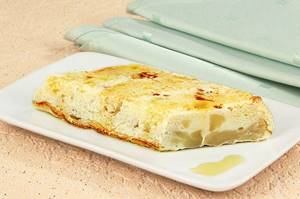
3 protein
100 g cauliflower
1 tbsp. sour cream
4-5 tbsp. milk
1 tsp ghee
Salt
Step 1. Boil the cauliflower and place in a greased form.
Step 2. Beat the egg whites with milk and pour the mixture over the cabbage. Bake in the oven for 7 minutes.
Step 3. Serve with sour cream and melted butter.
Weekly ration of the borscht diet (2nd option)
Monday
Breakfast: a portion of borscht. Snack: 2 small pears. Lunch: a portion of borscht and an apple. Afternoon snack: grapefruit or orange. Dinner: a portion of borscht and kiwi.
Tuesday
Breakfast: a portion of borscht and cucumber-tomato salad. Snack: a couple of cucumbers. Lunch: a portion of borscht. Afternoon snack: grated carrots. Dinner: a portion of borscht.
Wednesday
Breakfast: a portion of borscht and tomato. Snack: a couple of small baked apples. Lunch: a portion of borscht and a salad of cucumbers, bell peppers and tomatoes. Afternoon snack: grapefruit or 2 kiwis. Dinner: a portion of borscht.
Thursday
Breakfast: a portion of borscht. Snack: salad of cucumbers, tomatoes and herbs. Lunch: a portion of borscht and fresh carrots. Afternoon snack: a glass of milk and an orange. Dinner: apple and pear salad.
Friday
Breakfast: a portion of borscht and 100 g of stewed beef. Snack: tomato. Lunch: a portion of borscht. Afternoon snack: tomato. Dinner: 100 g of baked beef and fresh or baked tomato.
Saturday
Breakfast: a portion of borscht. Snack: cucumber and tomato. Lunch: up to 200 g of boiled beef accompanied by a vegetable salad with herbs. Afternoon snack: bell pepper and carrots. Dinner: a portion of borscht.
Sunday
Breakfast: a portion of borscht. Snack: a glass of apple juice. Lunch: a portion of borscht. Afternoon snack: a portion of borscht. Dinner: a portion of rice with vegetables (up to 250 g when cooked).
Cooking methods
- Article on the topic Dietary table No. 2. How to eat with gastritis, colitis and after infections? cooking in water and steaming
- baking
- frying without breading and without crust
Can:
- Butter (including ghee), refined vegetable oils.
- Berry, fruit, vegetable juices diluted with water.
- Milk, cooked cottage cheese, yogurt, kefir, fermented baked milk. No more than a dessert spoon of sour cream per dish. Cheese.
- Steam omelet, unfried scrambled eggs, soft-boiled eggs.
- Yesterday's bread, dry biscuit.
- Porridge mashed in water (can be done with milk), small pasta (chopped or vermicelli).
- Soups on a weak, low-fat broth with pureed cereals and vegetables.
- Vegetables: cauliflower, carrots, beets, zucchini, pumpkin, potatoes. Possible tomatoes, white cabbage, green peas.
- Coffee, cocoa, tea with the addition of cream, milk or lemon if desired.
- Candies, jam, honey, sugar, marshmallows, marshmallows.
It is forbidden:
- Flour products from puff pastry and butter dough, fresh bread.
- Bean, pea, milk soup, okroshka, millet soup.
- Fatty meat, poultry, smoked meats, goose, duck. Limit lamb and pork.
- Snack food canned fish, smoked and salted fish.
- Hard-boiled eggs.
- Limit barley, pearl barley, and corn grits.
- Excessively fatty and spicy snacks, canned food, smoked foods.
- Spicy and fatty sauces, horseradish, pepper, mustard.
- Kvass, grape juice.
- Pork lard, lamb, beef and cooking fats.
Disadvantages of the diet
- It is difficult to find significant disadvantages of a borscht diet. Perhaps its only disadvantage is that after 7 days of eating borscht so often, even those who love it very much can become quite tired of this dish. So you still have to stock up on a certain amount of endurance and patience.
- Compliance with fractional meals can also become difficult for working and constantly busy people. If you can’t manage to eat 5-6 times a day, switch to three meals a day, consuming approximately the same amount of products as with the recommended frequent snacks.
Advantages and disadvantages
| pros | Minuses |
|
|
How to cook in winter
In order to delight yourself with a fragrant first course, you can make special preparations in the fall.
For this you will need:
- Onions, carrots and tomatoes - 1 kg each.
- Beetroot – 3 kg.
- Salt – 60 gr.
- Sugar – 150 gr.
- Water – 450-500 ml.
- Lemon juice or apple cider vinegar – 220 gr.
- Vegetable oil – 20 gr.
All vegetables are chopped or minced, then lightly fried and simmered for 12-15 minutes over low heat. The remaining ingredients are added and the simmering is extended for another 20 minutes.
After this, the mixture is rolled into sterilized jars.
Thus, you can prepare the basis for any recipe: with beans, sorrel, zucchini, mushrooms or celery.
Low-calorie recipe options
The recipe for borscht is very variable. This allows you to create a wide variety of recipes that will satisfy the tastes and needs of every lover.
Vegetarian
- Onions – 1 pc.
- Carrots – 1 pc.
- Celery – 1 pc.
- Tomatoes – 2-3 pcs.
- Beet tops – 1 bunch.
- Sweet pepper – 1 pc.
- Cabbage – 300 gr.
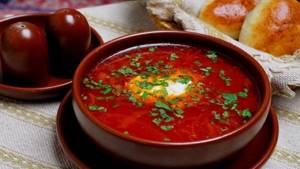
Preparation:
- Finely chop the onion and carrots with celery, add half a glass of water and simmer the vegetables for 7 minutes.
- Add 2 liters of water and after boiling, add peeled, grated tomatoes, peppercorns and bay leaves. Add salt.
- Cut the peppers and cabbage into strips, chop the tops.
- Add vegetable mixture to soup. Cook until done.
Serve with fresh herbs and vegetarian bread.
With sorrel (green)
- Onions – 1 pc.
- Carrots – 1 pc.
- Tomatoes – 2-3 pcs.
- Sorrel – 1 bunch.
- Cabbage – 300 gr.
- Beets – 2 pcs.
- Boiled eggs.
Preparation:
- Finely chop the carrots and onions and simmer them in a small amount of water.
- Add water, pureed tomatoes, salt, pepper and bay leaf. Cook for 5-7 minutes.
- Add chopped beets and shredded cabbage.
- 7 minutes before readiness – washed sorrel.
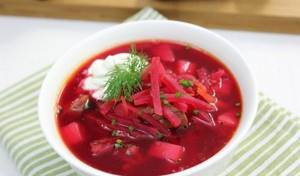
Lemon juice or vinegar is not required, as sorrel will add the necessary sourness to the dish. If the dish is not lean, then before serving you can add finely chopped boiled eggs to the plate.
With zucchini
- Sweet pepper – ½ pc.
- Onion – 1 pc.
- Small zucchini – 1 pc.
- Carrots and beets – 1 pc.
- Tomatoes – 2 pcs.
- Parsley or celery greens.
Preparation:
- Chop the onion into half rings, grate the carrots, beets and simmer in a small amount of water.
- After 5-7 minutes, add 2.5 liters of vegetable broth and mashed tomatoes.
- Chop cabbage, zucchini and pepper (into cubes).
- Add the vegetable mixture to the soup and bring it to a boil.
Leave for 20-30 minutes, then serve.
Mushroom
The soup is easy to prepare both in the traditional way and in a slow cooker:
- Beets – 300 gr.
- Fresh champignons – 250 gr.
- Onions, carrots, sweet peppers - 1 pc.
- Cabbage – 500 gr.
- Tomatoes – 3 pcs.
- Herbs and spices.
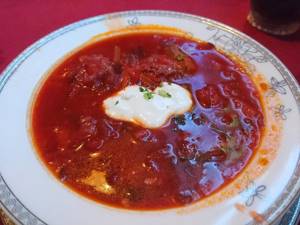
Preparation:
- Chop onions, peppers and cabbage, grate carrots and beets, cut mushrooms into slices.
- Place the onions and mushrooms in the multicooker on the “Fry” mode for 10-15 minutes. Add ⅓ cup of water or broth.
- After 4-5 minutes add carrots and peppers, after another 5 – beets and pureed tomatoes.
- Move well, add water, salt and add cabbage.
- Change the mode to “Soup” and set the timer for 25 minutes.
With beans
- Onions, carrots and sweet peppers - 1 pc.
- Beets – 2 pcs.
- Tomatoes – 2 pcs.
- Can of canned beans – 1 pc.
- Cabbage – 300-400 gr.
- Greenery.
- Lemon juice – 10 gr.
Preparation:
- Chop and simmer onions and carrots in a saucepan, adding diced sweet peppers at the end.
- Bake the beets in the oven. Cool and cut it into strips.
- Add peeled and pureed tomatoes and beets to the pan, 5 minutes after boiling, add cabbage.
- Add the beans to the soup and cook for another 10-15 minutes.
To add flavor at the end of cooking, you can add lemon juice to the borscht.
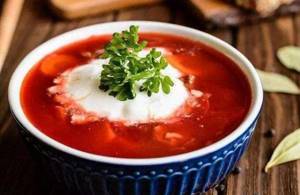
Beetroot
- Beetroot – 3 pcs.
- Cucumbers – 2 pcs.
- Boiled eggs – 3 pcs.
- Lemon juice – 20 gr.
- Greens (onion, dill).
- Sour cream 10% – 150-170 gr.
- Mustard – 20 gr.
Preparation:
- Boil the peeled beets and cut them into strips, sprinkle with lemon juice. Do not pour out the broth and let it cool.
- Chop the cucumbers and herbs into cubes, add everything to the broth along with the beets, add salt.
- Mix mustard and sour cream until smooth.
Description of the dish.
Hello, dear friends!
Those who are fasting or simply watching their figure should like low-calorie borscht with beans, a detailed recipe for which I will describe in today’s article.
This soup is very aromatic, tasty, light, and its preparation does not require any in-depth knowledge and skills in the field of cooking. The active part of the process will take no more than an hour.
Overall, this is an excellent first course for a pleasant, filling and healthy everyday lunch...
